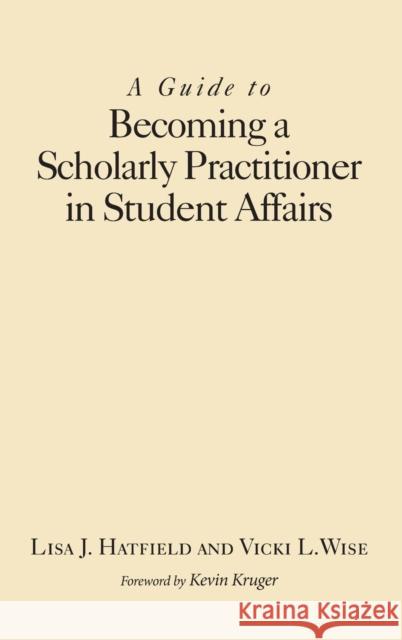A Guide to Becoming a Scholarly Practitioner in Student Affairs » książka
A Guide to Becoming a Scholarly Practitioner in Student Affairs
ISBN-13: 9781620361511 / Angielski / Twarda / 2015 / 112 str.
A Guide to Becoming a Scholarly Practitioner in Student Affairs
ISBN-13: 9781620361511 / Angielski / Twarda / 2015 / 112 str.
(netto: 723,00 VAT: 5%)
Najniższa cena z 30 dni: 654,86
ok. 22 dni roboczych.
Darmowa dostawa!
Student affairs professionals are increasingly being called upon to become scholar practitioners, to reflect on and share their experiences to further the knowledge of the field, and to disseminate practices to promote student learning and development.
This book offers practical guidance to anyone in the field interested in presenting at conferences or publishing in scholarly and professional journals, and sets the work of scholarly practice in the context of its vital role of influencing and shaping the future of student affairs, and in promoting continuous learning.
The authors demystify the processes of producing research and scholarly work; address motivation and barriers such as time-constraints or confidence; and provide advice on developing ideas, writing, getting feedback, staying on task, identifying the appropriate outlets and venues for ideas, submitting proposals, as well as on speaking and presentation skills. It also directs readers to books and online resources and presents the reflections of senior student affairs officers on scholarship in the profession.
As the authors state, student affairs professionals are often in the best position to test the myths about what really works for college students to have access, persist, and graduate. Through their daily interactions with students they develop the grounding for theories and strategies to improve the college experience, none of which can be advanced without scholarship, without presenting and writing, and the debate that they stimulate.
This book is intended for student affairs professionals at all levels. It sets the context for those starting their careers as they navigate and understand their new roles; aims to inspire mid-level professionals to present or write about their experiences and contributions; and offers senior administrators strategies to pursue their own scholarship while creating a supportive environment for their staff to do so, and develop their agency and professional growth in the process.











